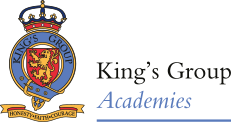By encouraging and facilitating the understanding of history we aim to help young people understand the present as well as to think about the future.
History can give us a sense of place and belonging within our complex society today whilst developing skills and empathy for others.
We place great importance on the skills history lessons can teach us in addition to the content and context of different historical periods. We learn how to measure the value of source as well as historical interpretation, how to measure significance, change and continuity in addition to the vital skills of how to use information to justify our decisions.
In KS3 we look how the UK developed with topics covering Crime and Punishment from Roman Britain to today, the Norman Conquest, and the Black Death to the English Civil Wars and Industrialisation. We also look into causes of the First World War and lesson we can learn from the Holocaust.
History Programme of Study(PDF)
If you don’t know the past you can’t understand the present and plan properly for the future
Chaim Potok
History GCSE
The GCSE History course gives you the opportunity to learn about real people: you
understand what motivates people and what they think and feel. If you like people, you should like history. History has made our world what it is and is also part of your future.
History will enable you to develop the skills to look beyond the headlines, to ask questions properly and to express your own opinions. Studying History helps you make sense of most other subjects, and understand the origins of modern political and social problems as well as the world in which we live.
Students will develop the ability to analyse and evaluate historical problems as well as interpret many different types of data: written, pictorial, graphical and numerical. Students will also learn to consider two sides of an argument and reach a substantiated judgement.
What will I study?
Thematic Study and Historical environment
For this paper you will study the history of medicine in Britain from 1250 to the present day and the British sector of the Western Front 1914–1918. You will look at the main changes in medicine from the Middles Ages to today and the reasons for this change including church, government, individual genius and war.
Period Study and British Depth study
You will study Anglo-Saxon and Norman England, including both the Battles of Stamford Bridge and Hastings as well as the rebellions against William, the Domesday book and the feudal system.
You will also study a second unit for this paper: Superpower relations and the Cold War, 1941–1991. You will look at ideological differences between Stalin, Truman and Churchill; The Berlin Wall and the Cuban Missile Crisis amongst other events.
Modern Depth study – Weimar and Nazi Germany 1918-1939
You will study the problems Germany faced after World War I, the development of the Nazi party, Hitler’s rise to power as well as investigations into life in Nazi Germany from different perspectives.
If you don't know history, then you don't know anything. You are a leaf that doesn't know it is part of a tree.
Michael Crichton
Author of Jurassic Park
History A Level
History A level helps you understand the significance of historical events, the role of individuals in history and the nature of change over time. It will also help you to gain a deeper understanding of the past through political, social, economic and cultural perspectives. You will look at the three following topics and also complete a piece of coursework.
In Search of the American Dream: The USA, c1917-96:
This topic looks at the dramatic political, economic and social transformation of the USA in the twentieth century, an era that saw the USA challenged by the consequences of political, economic and social inequalities at home and of its involvement in international conflict. This topic also contains a study in depth of the Reagan presidency had upon the USA in the years 1981–96.
South Africa, 1948-94: from Apartheid State to ‘Rainbow Nation’:
This topic looks at South Africa during its transition from white minority rule to the free elections of 1994, a long, and at times, dramatic process in which South Africa changed from an apartheid state into a multi-racial democracy.
It also looks at the creation and consolidation of the apartheid regime by the National Party and the response and methods used by their political opponents in the struggle to overthrow apartheid, as well social, economic and cultural changes that accompanied this process.
Entry Requirements
Skills Required
Good communication and presentation skills will be a real asset. Good essay writing skills. Selection and deployment of relevant information. Analysis of sources and evaluative skills.
Entry Requirements
- GCSE English at grade 5 or above.
- Four other GCSE’s at grade 5 (or equivalent) or above.
History A Level provides access to a broad range of academic courses and employment opportunities such as law, social work, civil service.
Mr J Dixon
Head of History
jdixon@kgaprospect.uk
Miss A Holt
More Able Co-Ordinator and History Teacher
aholt@kgaprospect.uk
Mr M Reynolds
Teacher of Humanities
mreynolds@kgaprospect.uk
Ms C Ward
Teacher of Humanities
cward@kgaprospect.uk

